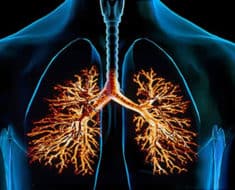
Alamy
It’s the time of your life you’ve been waiting for with anticipation: the time when your years of hard work are rewarded and you can relax and enter retirement. With people generally living for longer, retirement truly is an opportunity for you to relax and enjoy life, and many people use their retirement years to do all the things they were previously unable to due to the responsibilities of full-time employment and bringing up a family. However, all too often such plans are thwarted, due perhaps to the increasing health issues of an aging body, or lack of financial preparation. To help you enjoy your retirement years as much as possible, read on to discover how to prepare for a happy and healthy retirement.
Financial planning
The current retirement age for U.S. citizens is 66 years and 2 months for those born in 1955 or before, which is set to rise to 67 years for those born in 1960 and later. This is the age at which you are entitled to receive the full federal social security retirement benefits. However, it is possible to take early retirement, something that you may be increasingly tempted to do after having spent years in a stressful employment situation. Make sure that you weigh up the pros and cons before deciding what age to retire, and ensure that you have enough financial backing to support you should you decide to take early retirement. This is a decision that you should ideally make at a relatively young age so that you are able to save up a large nest egg to supplement your social security funds. Not only will this help you to enjoy your early retirement in comfort, as Medicare coverage is only available to those aged 65 and over, it should also be enough to cover healthcare costs.
Reduce potential health issues by leading a healthy lifestyle
As the body ages and sustains gradual wear and tear, you are likely to experience an increased amount of medical needs as you grow older and enter retirement age. Although these conditions are all part and parcel of getting older, there are certain risk factors that greatly increase your chances of experiencing conditions like heart disease, such as smoking, leading a sedentary lifestyle, and consuming a diet high in alcohol and saturated fats and sugar. To reduce your risk factors, endeavor to lead as healthy and active a life as possible. Eat a diet that is low in saturated fats and sugar and high in fresh fruits and vegetables, and try to fit in 30 minutes of gentle exercises, such as walking or stretching exercises, into your daily routine. Eliminate smoking and excessive alcohol consumption from your diet. Taking steps such as these will reduce your risk factors for chronic age related conditions such as diabetes and heart disease.
Consider future living situations
Many people spend their entire adult lives striving to live in their dream home, whether that is by moving properties or carrying out extensive renovations. However, the stark reality is that as you grow older you may experience an increase in mobility issues that make it more difficult to move around your dream home and keep on top of the housework. To enable you to maintain your independence in your own home, you could consider adding mobility aids to your property, such as a stairlift and handrails placed at regular intervals. There may come a point, however, when you might have to consider that remaining in your home may not be the best thing for you. Living in an assisted living community would enable you to thrive, as you will receive assistance in carrying out daily tasks that you might struggle with, such as the housework and washing, while also maintaining as much independence as possible. Facilities are staffed with experienced healthcare professionals 24/7 to help you with your daily requirements and provide any medical care you might need. Assisted living communities also provide you with a ready made community of others of a similar age, complete with social activities such as excursions and entertainment, reducing the sense of loneliness and isolation that often increases as people grow older.
Work on your brain health
You are no doubt well aware of the importance of maintaining physical health through a healthy diet and regular exercise, but have you ever considered the importance of maintaining brain health? With an increased number of people living well into their 70s, 80s, and beyond, recent years have seen a huge increase in people living with dementia and living in specialist memory care facilities. The conditions referred to under the umbrella of dementia, such as Alzheimer’s disease, usually exert a huge emotional toll on the person with dementia and their loved ones. However, there are certain preventative measures you can take to reduce your risk factor and build up your brain strength and memory. Regularly engage in intellectual activities such as completing crossword puzzles, playing games, and regular social interaction to help exercise the brain. Retirement provides a great opportunity to achieve such things, giving you the time, for instance, to learn a new language.
Maintain social interactions
Retirement is undoubtedly a huge life event, and though much has been said about its benefits, it can also sometimes prompt a bout of depression – the sudden change of working full time and living your life to a set routine, to not having anything specific to do in a day, can become overwhelming. You might specifically miss the social interactions of the workplace and find yourself becoming lonely in retirement. It is important not to become isolated and to maintain social interactions in retirement to prevent depression and loneliness. Make an effort to commit to a weekly lunch date with other retired friends, or take up a sociable hobby like an aerobics class. You could even join a lunch club for older people for some company and a hot meal during the day.









































